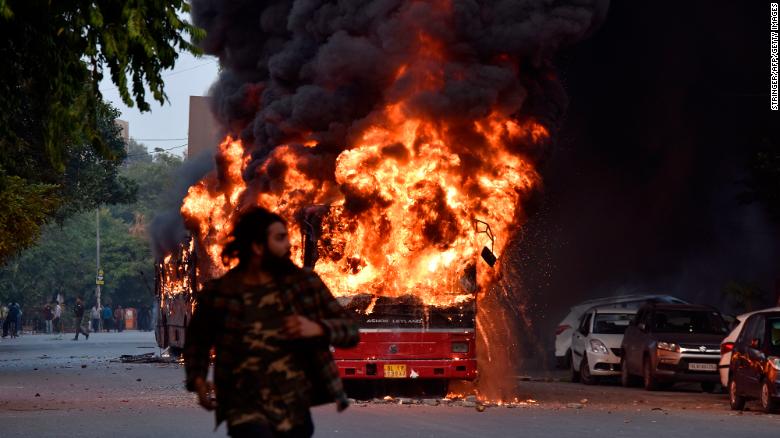India citizenship law protests spread across campuses
New Delhi (Reuters) – Protests over a new Indian citizenship law based on religion spread to student campuses on Monday as critics said the Hindu nationalist government was pushing a partisan agenda in conflict with the country’s founding as a secular republic.
Students pelted stones at police who locked up the gates of a college in the northern city of Lucknow to prevent them from taking to the streets. About two dozen students at another college in the city sneaked out to protest.
Anger with Prime Minister Narendra Modi’s government was stoked by allegations of police brutality at Jamia Millia Islamia university on Sunday, when officers entered the campus in the capital New Delhi and fired tear gas to break up a protest. At least 100 people were wounded.
Under the law passed by parliament last week, religious minorities such as Hindus and Christians in neighbouring Muslim-majority Bangladesh, Pakistan and Afghanistan who settled in India before 2015 will have a path to citizenship on grounds they faced persecution in those countries.
Critics say the law, which does not make the same provision for Muslims, weakens India’s secular foundations.
Modi called for calm, saying the protests were deeply distressing. “Debate, discussion and dissent are essential parts of democracy but, never has damage to public property and disturbance of normal life been a part of our ethos,” he said in a tweet.
Cars were attacked in Delhi on Sunday and public buses set on fire.
The head of Jamia Millia demanded an investigation into how police were allowed to enter the campus. “It is not expected of the police to enter the university and beat up students,” Najma Akhtar told a news conference.
Students said police fired tear gas and windows were broken in the library. They ducked under desks and switched off the lights as advised by teachers. Police said they acted with restraint.
Rahul Gandhi, leader of the main opposition Congress party, said the Modi government was dividing Indian society through the citizenship law and a plan to launch a national citizenship register.
“The best defence against these dirty weapons is peaceful, non-violent Satyagraha,” he said in a tweet referring to the strategy of passive political resistance advocated by independence leader Mahatma Gandhi.



